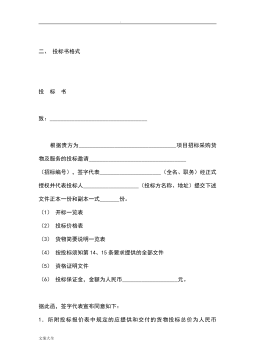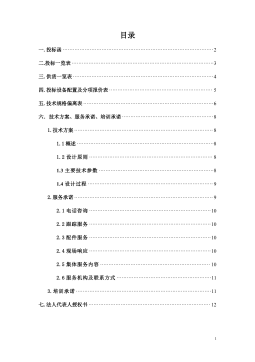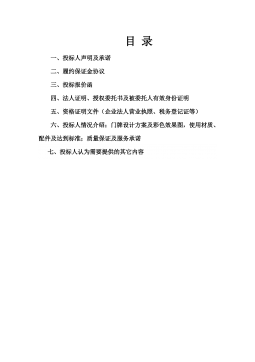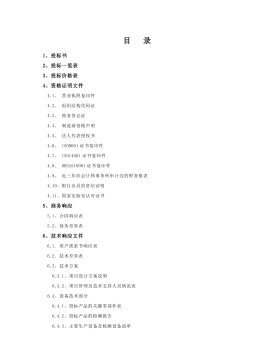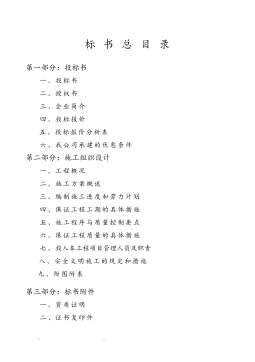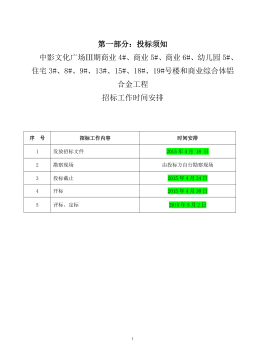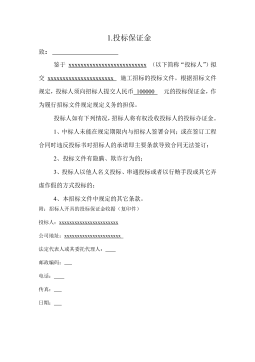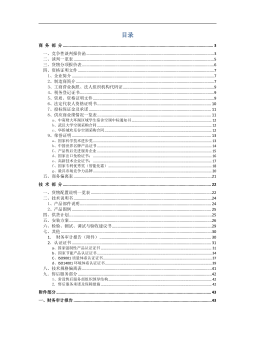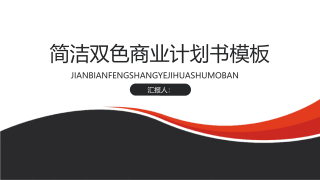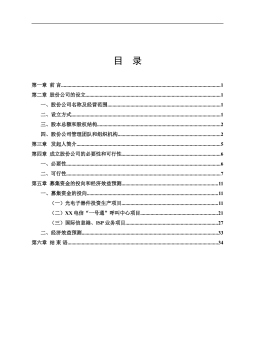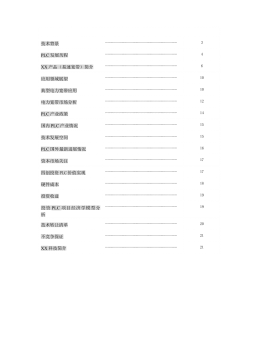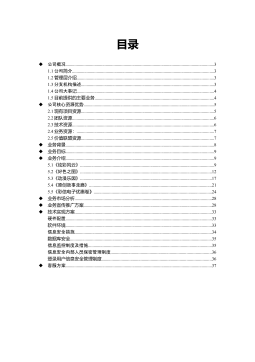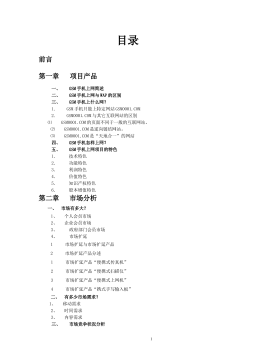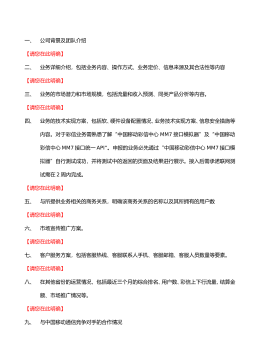金融机构与物流企业在存货质押业务中的激励研究
VIP免费
I
摘要
随着越来越多的中小企业通过存货质押运作获得了银行贷款,改善资金链。
同时,许多知名的物流企业和金融机构也因开展存货质押业务实现了新的利润增
长,存货质押在我国已引起了广泛的关注。与传统信贷业务相比,存货质押业务
引入了新的参与主体——物流企业作为监督者,在一定程度上改善了金融机构与
融资企业间的信息不对称问题。但金融机构往往为了实现自身收益最大化、风险
最小化,而通过契约最大限度地将风险转嫁给物流企业,加之金融机构对物流企
业的激励不足,导致物流企业进行存货质押业务的积极性不断降低,即由于金融
机构与物流企业激励机制的不完善制约着存货质押业务的发展。
因此,本研究以存货质押业务中金融机构与物流企业的激励为研究对象,以
委托代理和激励理论为理论基础,从信息不对称角度,运用类比和对比、博弈分
析、构建模型、算例研究等方法分析了二者间的委托代理关系,并提出了完善我
国存货质押业务中金融机构与物流企业激励机制的建议。
本研究的创新点主要体现在以下两个方面:(1)从理论分析和模型论证两方
面对存货质押业务中金融机构与物流企业的委托代理关系进行了界定,引入实际
案例对改进的激励模型的激励作用进行了验证;(2)结合我国存货质押业务中金
融机构与物流企业的激励机制实施现状、存货质押三方参与主体博弈模型分析、
委托代理激励机制的研究结果,完善了金融机构与物流企业的激励机制。
本文首先从基本内涵出发,对委托代理理论基础、经济学激励理论,存货质
押等方面的内容进行梳理,并对相关文献进行评析,为下面的研究做铺垫;接着
进入文章的核心部分,对存货质押业务中金融机构与物流企业的委托代理关系及
其激励现状进行了分析,并对存货质押业务中三方参与主体的行为进行了博弈均
衡分析,然后重点研究了金融机构与物流企业间的激励机制,通过算例分析验证
了改进的激励机制对物流企业的激励作用;最终得出如下结论:
1.存货质押业务三方参与主体构成双重委托代理关系
在存货质押这一创新型融资业务中,金融机构与物流企业之间存在着信息的
非对称性、契约关系和利益结构三大既定关系,具备构成委托代理关系的要件。
在存货质押业务中,物流企业同时作为金融机构的代理人和融资企业的委托人。
2.金融机构对物流企业采取的激励机制存在模式较为单一、报酬激励与业绩
不挂钩、声誉激励市场尚未形成等方面的不足。
3.金融机构对融资企业单独作假行为或融资企业与物流企业合谋作假行为进
行核查并能查实作假的概率与作假总收益成正比;与查实作假后对作假者的罚款
总额、不作假时物流企业和融资企业的正常收益成反比。
II
4.融资企业参与作假的概率与金融机构的核查成本、不作假时金融机构的正
常收益成正比;与金融机构能查实作假的概率、参与作假的预期总收益、作假被
查实的罚款总额成反比。
5.在金融机构现行的报酬“分成”激励机制下,金融机构与物流企业双方各
自的报酬最大化动机是不相容的,因此,物流企业可能会为了实现自身效用最大
化而牺牲金融机构利益。
6.当金融机构对物流企业采取“爪回”条款时,物流企业在一项存货质押业
务中获得的收益与金融机构收回贷款的速度同向变动。这就意味着,金融机构越
早收回贷款或者在早期收回的贷款越多,物流企业获得的收益越高;反之,则收
益越低。
7.若金融机构对不同资金规模的存货质押业务设立不同的收益分成比率,则
物流企业为多笔小额业务提供服务获得的业绩报酬低于为少数笔大额业务提供服
务获得的业绩报酬。
最后,根据以上结论,本研究提出改善金融机构与物流企业激励机制的实践
性建议,并指出本研究的局限性及未来的研究方向。
关键词:存货质押;委托代理;信息不对称;激励机制
III
ABSTRACT
As the rapid development of inventory pledge loan in China , more and more
Small and Medium-sized Enterprises have gained credit funds and improved funds
chain; Inventory pledge loan in China also has open up new profit marketplace for a lot
of logistics enterprises and financial institutions. Comparing to traditional credit
operations, Inventory pledge loan introduces a new partner——logistics enterprises as
a supervisor into the operations so as to improve the information asymmetry between
financial institutions and logistics enterprises. However, financial institutions are
trying to transfer their risks to logistics enterprises in order to maximize their revenue
and minimize risks. Meanwhile, insufficient incentives are dampening the initiative of
logistics enterprises. All of these problems restrict the further development of
inventory pledge loan.
Based on the background above, from the perspective of information asymmetry,
this dissertation selects incentives between financial institutions and logistics
enterprises of inventory pledge loan as the research object. This dissertation mainly
analyses the principal-agent relationship in financial institutions, which based on the
theories of Principal-Agent, Inspirit and Restrict, the knowledge of Game theory and
other related disciplines. Analogy and contrast, modeling, case studying are the main
methods. At last, according to the situation and drawbacks of inventory pledge loan in
China, this dissertation provides several countermeasures for the development of
inventory pledge loan incentive mechanisms.
The following two aspects indicate this dissertation’s innovation mainly: First,
this dissertation defines the principal-agent relationships of inventory pledge loan from
theoretical analysis and model proof, and uses a case to demonstrate the functions of
the improved incentive mechanism; second, this dissertation combines the present
situation of principal-agent incentive mechanism, gambling model analysis and
findings of principal-agent incentive mechanism of inventory pledge loan, and then
consummates the principal-agent incentive mechanism.
This dissertation starting from the basic theories of principal-agent, incentive
mechanism and inventory pledge loan, and then entering into the core parts which
analyzes the principal-agent relationship and existing incentive mechanism between
IV
financial institutions and logistics enterprises. Meanwhile, the tripartite game
equilibrium is analyzed, and then focus on how to improve the existing incentive
mechanism. By calculating the examples, it demonstrates that the improved incentive
mechanisms greatly encourage the logistics enterprises; finally, this dissertation gains
the conclusion as bellow:
1. Three participants of inventory pledge loan compose the dual principal-agent
relationships. Three fixed factors, which are asymmetric information, contractual
relationships and profit configuration, compose the dual principal-agents relationships.
In the inventory pledge loan, logistics enterprise acts as the agent of financial
institution and the principal of finance company.
2. The existing incentive mechanism between financial institutions and logistics
companies has three mainly disadvantage, such as the incentive mechanism is too
single, the rewards can’t match the performance and the reputation incentive
mechanism hasn’t formed.
3. The inspection and confirmation probability of financial institutions has a
positive relationship with total fraud revenue. However, it has a negative relationship
with fines, normal earnings of logistics enterprises and finance companies when there’s
no fraud.
4. The fraud probability of finance companies has a positive relationship with
the inspecting cost of financial institutions and the normal earnings of financial
institutions when there’s no fraud. However, it has a negative relationship with the
inspection and confirmation probability of financial institutions, the expected total
revenue and fines of fraud.
5. Under current revenue sharing incentive mechanism, the motivation of
maximizing profit of financial institution and logistics enterprise are incompatible.
Thus, logistics enterprise may sacrifice the benefit of financial institution in order to
maximize its own utility.
6. Revenue of logistics enterprise changes in the same direction of the
recovering speed of loans when financial institution takes a “Claw-Back” clause. This
means the sooner financial institution recovers the loans, the more logistics enterprise
gets. Conversely, the less it gets.
7. If financial institution sets different sharing ratios depending on the capital
scale of inventory pledge loans, logistics enterprise will get less from lots of small
business comparing to a few of large business.
V
Finally, according to the above conclusions, this dissertation offers several
practical advices for financial institutions in order to stimulate the enthusiasm of
logistics enterprises. Meanwhile, this dissertation indicates the limits and the future
direction of the research.
Keywords: Inventory Pledge Loans; Principal-Agent; Information Asymmetry;
Incentive Mechanism
VI
目录
第一章 绪论················································································································· 1
第一节 研究背景·································································································· 1
第二节 研究意义与创新点·················································································· 2
第三节 研究思路、方法与框架··········································································· 3
第二章 理论基础与文献综述······················································································· 6
第一节 委托代理理论·························································································· 6
第二节 经济学激励理论······················································································ 9
第三节 存货质押研究现状················································································ 11
第四节 以往研究评价························································································ 14
第三章 委托代理关系的识别及激励现状·································································· 16
第一节 金融机构与物流企业委托代理关系的识别········································· 16
第二节 存货质押业务中金融机构与物流企业的激励现状····························· 18
第四章 金融机构与物流企业的激励研究································································ 21
第一节 存货质押参与主体的三方博弈分析····················································· 21
第二节 金融机构对物流企业的报酬“分成”激励机制的缺陷······················ 28
第三节 改进的报酬“分成”激励机制····························································· 31
第四节 金融机构对物流企业的声誉激励机制················································· 33
第五章 算例研究········································································································· 38
第一节 算例研究背景介绍················································································ 38
第二节 改进的报酬“分成”激励机制的影响分析········································· 39
第六章 研究结论与展望····························································································· 45
第一节 研究结论与管理建议············································································· 45
第二节 研究局限与未来研究方向····································································· 47
参考文献········································································································································· 48
摘要:
展开>>
收起<<
I摘要随着越来越多的中小企业通过存货质押运作获得了银行贷款,改善资金链。同时,许多知名的物流企业和金融机构也因开展存货质押业务实现了新的利润增长,存货质押在我国已引起了广泛的关注。与传统信贷业务相比,存货质押业务引入了新的参与主体——物流企业作为监督者,在一定程度上改善了金融机构与融资企业间的信息不对称问题。但金融机构往往为了实现自身收益最大化、风险最小化,而通过契约最大限度地将风险转嫁给物流企业,加之金融机构对物流企业的激励不足,导致物流企业进行存货质押业务的积极性不断降低,即由于金融机构与物流企业激励机制的不完善制约着存货质押业务的发展。因此,本研究以存货质押业务中金融机构与物流企业的激励...
作者:周伟光
分类:高等教育资料
价格:150积分
属性:58 页
大小:475.68KB
格式:PDF
时间:2024-09-20


